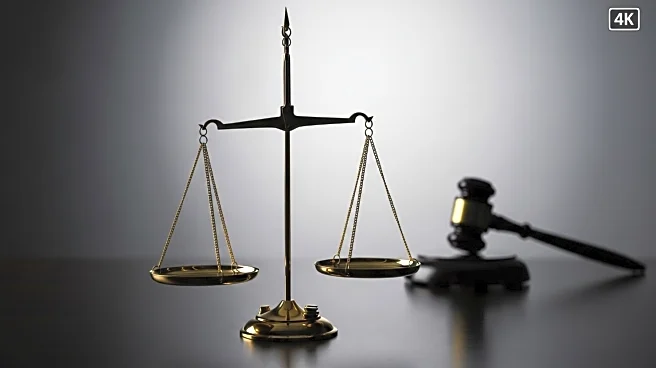What is the story about?
What's Happening?
Justice Samuel Alito has stated that he is not advocating for the overturning of the Supreme Court's decision that legalized same-sex marriage, despite a pending case that seeks to challenge this ruling. Alito made these remarks during a speech at an academic conference in Washington, where he discussed his judicial philosophy. The case in question has been filed by Kim Davis, a former county clerk from Kentucky, who gained notoriety for refusing to issue marriage licenses to same-sex couples following the Obergefell v. Hodges decision. Alito, who dissented in the Obergefell case, reiterated his criticisms of the decision but emphasized that he is not suggesting it should be overruled. His comments come as the Supreme Court, which has shifted further to the right, is set to discuss whether to hear Davis's appeal this fall.
Why It's Important?
Alito's clarification is significant as it addresses concerns about the potential rollback of key Supreme Court decisions following the court's conservative shift. The Obergefell ruling, which legalized same-sex marriage nationwide, is a landmark decision that has had profound social and legal implications. Alito's comments may reassure those worried about the stability of this precedent, especially after the court's recent decision in Dobbs v. Jackson Women’s Health Organization, which overturned Roe v. Wade. The pending case by Kim Davis highlights ongoing legal challenges to same-sex marriage rights, and the court's decision on whether to hear the case could have far-reaching consequences for LGBTQ+ rights in the U.S.
What's Next?
The Supreme Court is expected to discuss whether to hear Kim Davis's appeal in the coming months. If the court decides to take up the case, it could lead to a significant legal battle over the rights of same-sex couples. Stakeholders, including LGBTQ+ advocacy groups and civil rights organizations, are likely to closely monitor the court's actions. The decision could also prompt legislative responses at both state and federal levels, depending on the outcome. As the court continues to navigate contentious social issues, its rulings will be pivotal in shaping the legal landscape for marriage equality and other civil rights matters.















